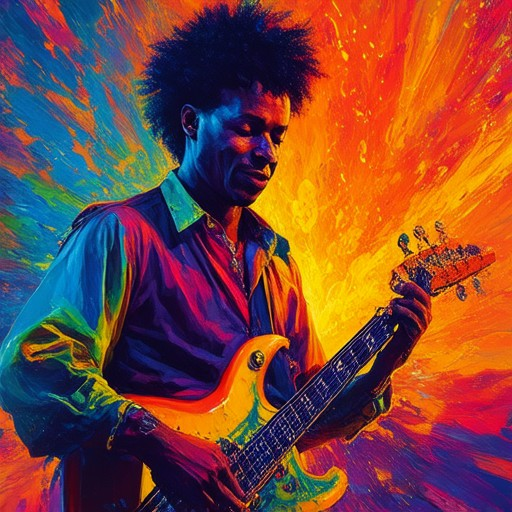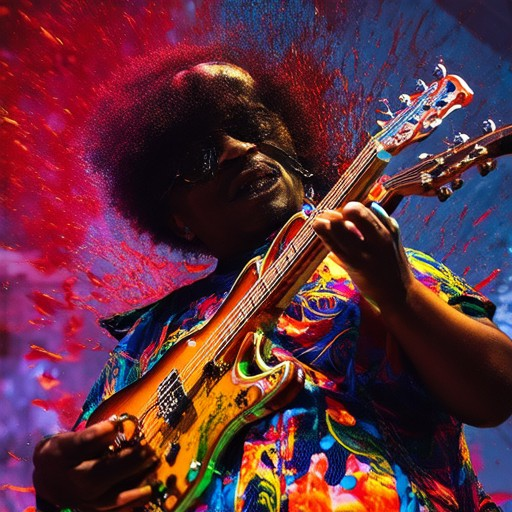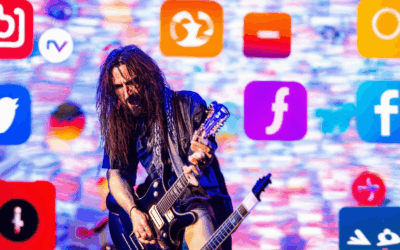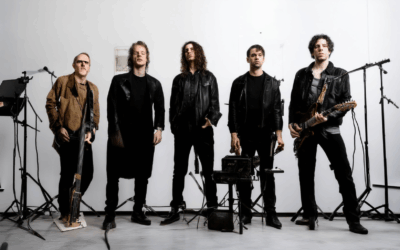In today’s dynamic music landscape, building a music brand is essential for artists aiming to leave a lasting impact. With countless musicians vying for recognition, crafting a unique identity that resonates with audiences and stands out in a crowded market is crucial. Whether through a distinctive sound, visuals, or personal ethos, a well-defined music brand can empower artists to connect authentically with fans and carve a niche in the industry. This guide explores the multifaceted journey of building a music brand, covering everything from establishing a cohesive identity to navigating legal and financial considerations. By understanding the intricacies of music branding, artists can transform their passion into a thriving career, ensuring their legacy lingers far beyond their debut performance.
Key Takeaways
– Define Your Unique Style and Personality: Establish what sets you apart, whether through genre, lyrical themes, or stage presence, and ensure authenticity resonates with your audience.
– Create a Cohesive Visual Identity: Consistently project a unified image across all platforms, using professional photography and design aligned with your brand.
– Develop a Strong Online Presence: Build a professional website and maintain active social media profiles, regularly sharing content that reflects your brand.
– Consistently Create and Share Content: Regularly release music and share behind-the-scenes content to engage fans and maintain audience interest.
– Engage with Your Audience: Interact thoughtfully through comments, messages, and live events to build trust and foster a sense of community.
– Deliver Memorable Live Performances: Curate unique sets that reflect your signature style and emotionally connect with your audience.
– Set Long-Term Goals and Milestones: Define measurable objectives, such as genre recognition or collaborations, and track your progress to stay on course.
– Navigate Collaboration and Networking Opportunities: Connect with musicians, producers, and influencers to build a supportive team and expand your reach.
– Focus on Monetization Strategies: Explore revenue streams like sales, streaming, and live performances, ensuring alignment with your artistic values.
– Monitor and Adapt to Feedback: Stay attuned to audience reactions and industry trends to refine your approach and enhance your offerings.

How to Create a Musician Brand
- Define Your Brand Identity
- Choose a memorable name that reflects your music style and personality.
- Develop a unique visual identity, including colors, logos, and album artwork.
- Establish your brand voice and messaging to resonate with your target audience.
- Consistently showcase your authenticity and passion for music in all communications. Learn more about branding principles .
-
Develop a Unique Style
- Experiment with different music genres and techniques to carve out your niche.
- Find inspiration from your favorite artists but stay true to your own creativity.
- Invest time in refining your sound, whether it’s through songwriting, production, or instrumental skills.
- Collaborate with other musicians to bring diverse influences into your work Discover collaboration ideas .
-
Establish an Online Presence
- Create a professional website with bio, discography, and tour dates.
- Build a strong social media strategy across platforms like Instagram, YouTube, and TikTok.
- Start a blog or podcast to share your thoughts on music and industry insights.
- Release high-quality music and visuals consistently to attract and retain followers Explore content creation tips .
-
Grow Your Audience
- Network with other musicians, promoters, and industry professionals.
- Engage with fans by responding to comments and messages, and create interactive experiences.
- Use email marketing and newsletters to keep your audience updated.
- Host live performances or virtual events to connect with fans globally Check out event promotion ideas .
-
Monetize Your Brand
- Sell merchandise, vinyl records, and exclusive music releases.
- Earn revenue from streaming platforms by leveraging partnerships and royalties.
- Seek sponsorships and advertising deals that align with your brand values.
- Organize tours and sell tickets through your official channels Explore monetization strategies .
-
Continuous Evolution
- Stay updated on music trends and adapt your brand accordingly.
- Regularly seek feedback from fans and industry experts to refine your approach.
- Keep experimenting with new sounds and creative expressions to stay ahead of the curve.
- Celebrate milestones and highlight your journey to inspire others Share your story effectively .
Do I Need an LLC for My Music?
Forming an LLC is a strategic decision that offers significant advantages for musicians seeking to establish a professional career. Here’s a breakdown of the key considerations:
- Liability Protection: An LLC shields your personal assets, protecting you from potential legal issues arising from business operations. This is crucial for musicians involved in live performances, merchandise sales, or other revenue streams.
- Tax Flexibility: LLCs provide tax flexibility, allowing you to choose how your earnings are taxed, potentially reducing your tax burden compared to other business structures.
- Professional Image: Operating under an LLC enhances your credibility, making you appear more established to potential collaborators, booking agents, and sponsors.
- Cost Considerations: While setting up and maintaining an LLC involves costs like registration fees and annual reports, these expenses are often justified by the benefits gained, especially as your career grows.
- Management Flexibility: An LLC allows for flexible management, enabling you to manage independently or with a team, depending on your needs and resources.
- Long-Term Growth: As your music career evolves and diversifies, an LLC supports sustainable growth by providing a structured framework for various revenue streams.
While not immediately necessary for casual musicians, an LLC is recommended for those aiming for a professional, sustainable career. Consulting with a legal or financial expert specialized in music careers can provide tailored guidance and help navigate potential complexities.

How to Brand Yourself as an Artist
Branding yourself as an artist involves creating a unique identity that resonates with your audience and sets you apart from others in your field. Here’s a step-by-step guide to help you get started:
1. Define Your Unique Style
Your style is the foundation of your brand. Identify what makes your work distinct—whether it’s your color palette, subject matter, or artistic medium. Consistency is key; stick to your style to build recognition over time.
2. Develop Your Personal Brand Identity
Think beyond your art. Consider your personality, values, and vision. Share your story to connect with others on a deeper level. This human element makes your brand memorable and relatable.
3. Build an Online Presence
In today’s digital age, having a strong online presence is crucial. Create a portfolio website showcasing your best work. Use social media platforms to share your creations, engage with followers, and promote your brand consistently.
4. Network and Collaborate
Collaborating with other artists, writers, and creatives can expand your reach. Attend art shows, workshops, and events to meet like-minded individuals. Building relationships can open doors to new opportunities and partnerships.
5. Stay Consistent and Evolve
Consistency builds trust, but it’s important to evolve and adapt. Stay updated with trends and feedback from your audience. Fine-tune your brand as needed while maintaining the core elements that make it uniquely yours.
6. Use Strategic Visuals
Visual elements like logos, color schemes, and typography play a big role in your branding. Work with a designer or create your own visuals to ensure they align with your overall identity.
Learn more about building your artistic brand by exploring resources and guides tailored for artists.
By focusing on these steps, you’ll create a powerful personal brand that stands out in the competitive world of art.

How to Find Your Brand as a Musician
Building a personal brand as a musician involves several key steps that help you establish a unique identity and connect with your audience effectively. Here’s a structured approach:
- Define Your Unique Style and Personality: – Identify what sets you apart. Whether it’s your genre, lyrical themes, or stage presence, showcase what makes you distinct. – Reflect your personality through your music and interactions. Authenticity resonates deeply with audiences.
- Create a Cohesive Visual Identity: – Consistently project a unified image across all platforms. This includes your stage presence, album covers, and social media profiles. – Use professional photography and design elements that align with your brand.
- Develop a Strong Online Presence: – Build a professional website that serves as your hub for music, news, and community engagement. – Maintain active profiles on social media platforms, updating regularly with content that reflects your brand.
- Consistently Create and Share Content: – Regularly release music that aligns with your vision. Consider releasing singles, EPs, or albums at intervals that keep your audience engaged. – Share behind-the-scenes content, such as studio sessions or tour diaries, to connect with fans on a deeper level.
- Engage with Your Audience: – Interact with fans through comments, messages, and live events. Respond thoughtfully to build trust and loyalty. – Host live streams or Q&A sessions to foster a sense of community.
- Deliver Memorable Live Performances: – Each performance should feel unique yet true to your brand. Curate sets that highlight your signature style and tell a story. – Engage your audience emotionally, leaving them with lasting memories.
- Set Long-Term Goals and Milestones: – Clarify where you want your career to go. Define measurable goals, such as becoming a recognized artist in your genre or collaborating with notable names. – Track your progress and adjust strategies as needed to stay on course.
- Navigate Collaboration and Networking Opportunities: – Connect with other musicians, producers, and influencers to support your growth. Attend local events or join online communities. – Build a supportive team, including a manager or booking agent, to handle logistics and expand your reach.
- Focus on Monetization Strategies: – Explore revenue streams like music sales, streaming royalties, and live performances. Ensure these strategies align with your artistic values. – Seek partnerships with promoters and venues that offer fair compensation while maintaining your brand integrity.
- Monitor and Adapt to Feedback: – Stay attuned to audience reactions and industry trends. Use feedback to refine your approach and enhance your offerings. – Be patient and persistent, as building a successful brand takes time and dedication.
Do I Need to Trademark My Musician Name?
Protecting your musician name is crucial for safeguarding your brand identity and avoiding potential conflicts with other artists. Here’s a concise guide to help you decide:
- Why Trademark? A trademark legally protects your name, preventing others from using it in a commercial context. This is particularly important in the music industry, where similar names are common.
- Protection Scope: While copyright protects original works, trademark safeguards your brand elements like logos and names. This helps prevent confusion and legal disputes.
- Consideration for Sales: If you plan to sell merchandise or services under your name, trademarking offers added security and professionalism.
- Research Requirements: Begin by checking the availability of your name in your target market. Each country has its own registry, such as the U.S. Patent and Trademark Office or the EU Intellectual Property Office.
- Legal Consultation: Consulting an intellectual property attorney is advisable to navigate complexities and ensure compliance with local regulations.
- Budget Considerations: Factor in registration fees, which vary by country, and ongoing maintenance costs for renewal.
- Potential Pitfalls: Be aware that trademarks require periodic renewal and may not cover non-commercial uses, though they offer significant protection in professional settings.
Ultimately, trademarking your musician name is a strategic move that balances legal protection with brand credibility. Start with thorough research and seek professional advice to proceed effectively.

Sponsorships for Musicians
Musicians often collaborate with various companies to support their careers and projects. These partnerships can cover expenses like equipment, travel, and marketing. Here are some key categories of sponsors:
Music Equipment Manufacturers
- Guitar Brands : Companies like Fender and Gibson frequently sponsor musicians.
- Drum Companies : Brands such as Ludovico Drums and Tama provide gear to drummers.
- Amp Amplifiers : Companies like Marshall Amps and Fender offer sponsorship opportunities.
Lifestyle Brands
- Clothing and Footwear : Brands such as Adidas and Nike often sponsor musicians through apparel deals.
- Energy Drinks : Companies like Red Bull and Monster Energy provide sponsorship support for high-energy performances.
- Accessories : Brands offering accessories like Cowboys & Cows and McMuffins may sponsor musicians.
Technology Companies
- Audio Equipment : Companies like Shure and Sennheiser provide microphones and sound systems for live performances.
- Streaming Services : Platforms such as Spotify and Apple Music sometimes sponsor musicians through promotional features.
Other Sponsors
- Recording Studios : Studios like Hollywood Recording offer sponsorship opportunities for recording sessions.
- Tour Support : Companies providing tour buses and transportation, such as Rewind Tour Buses , often partner with musicians.
- Charitable Organizations : Some musicians work with organizations like Red Cross and UNICEF for fundraising efforts.
Conclusion
Musicians have access to a wide range of sponsors across various industries. By partnering with these companies, they gain valuable resources and exposure. Whether it’s through music gear, lifestyle brands, or tech innovations, these sponsorships play a crucial role in supporting musical careers.



0 Comments